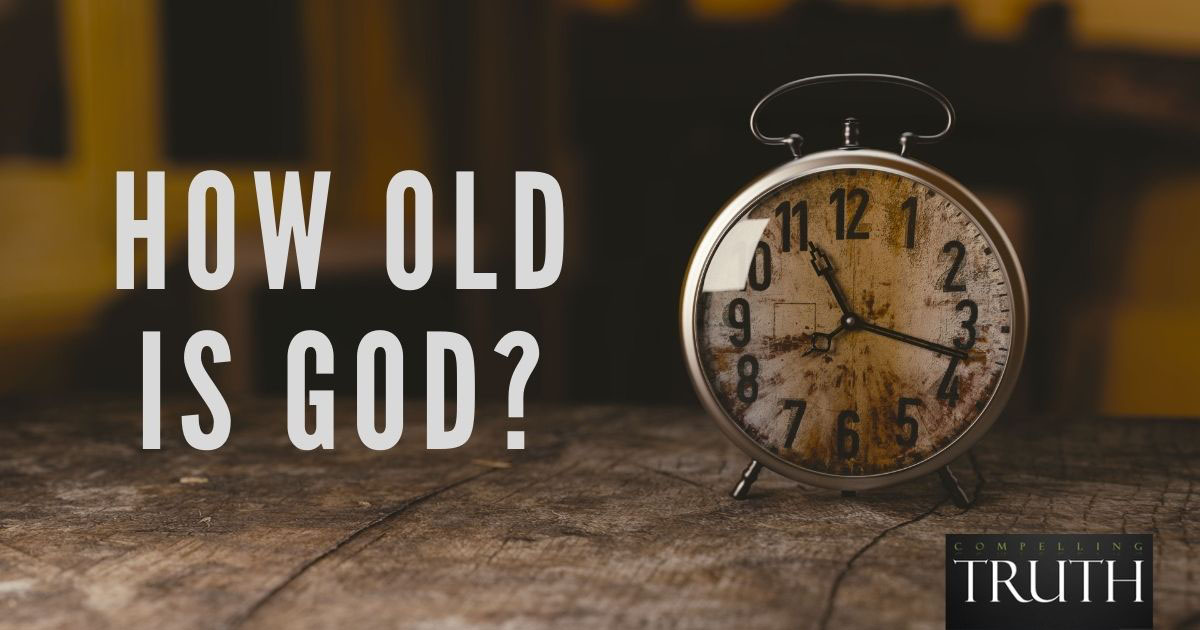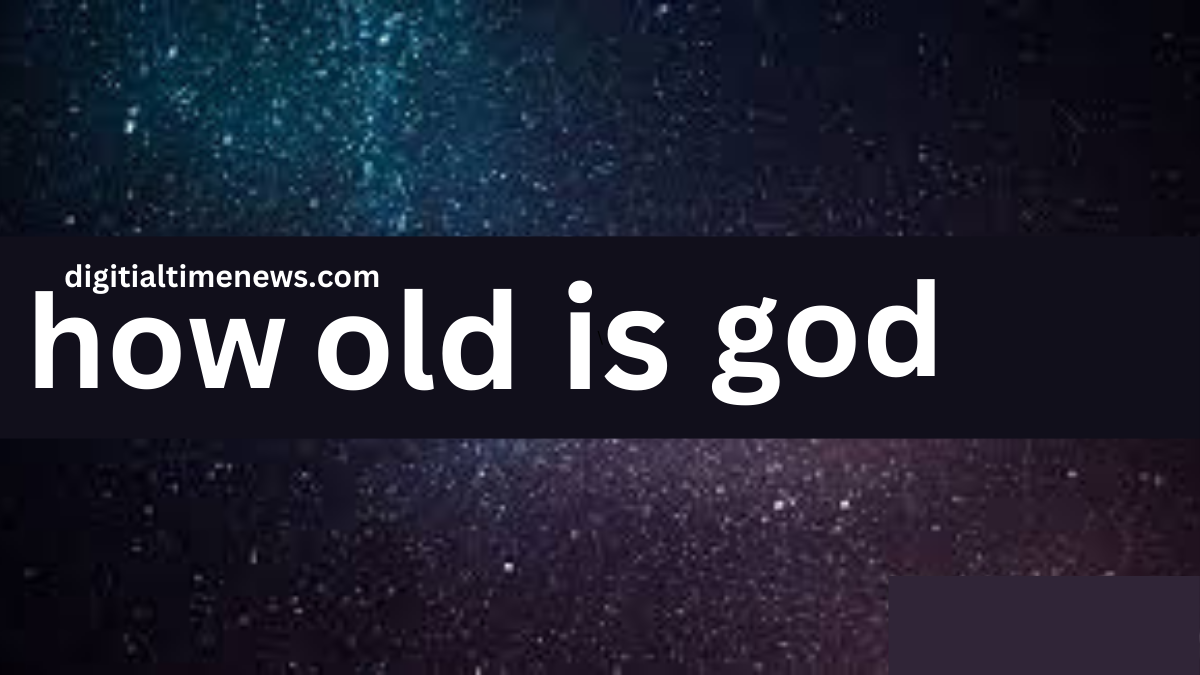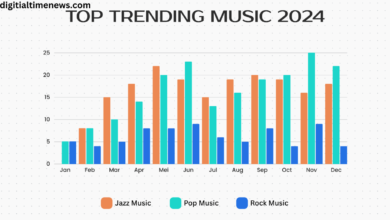The question of “how old is God?” is one of the most intriguing and profound queries that humans have pondered for centuries. It touches on the very essence of existence, spirituality, and the nature of the divine. This exploration will delve into the concept of divine age from various religious, philosophical, and scientific perspectives, providing a comprehensive understanding of this elusive question how old is god.
Understanding the Concept of Divine Timelessness

To tackle the question of “how old is God?” we first need to understand what we mean by age and time in a divine context. In most religious traditions, God is not subject to the same constraints as humans. This timelessness is a fundamental characteristic that distinguishes the divine from the mortal how old is god.
The Nature of Divine Timelessness
Eternal and Infinite: In many religious doctrines, God is considered eternal, meaning He exists beyond the bounds of time. This view posits that God has no beginning or end. For instance, in Christianity, God is often described as eternal in both the Old and New Testaments. The concept of eternity implies a state of existence that is not measured in the usual sense of time how old is god.
Transcending Time: From a philosophical standpoint, time is seen as a construct that applies to the created universe. If God created the universe, then He exists outside of this construct. This idea suggests that asking about the age of God might be akin to asking about the age of a concept that exists outside the realm of our understanding how old is god.
Theological Implications: Various religious traditions offer different explanations. For example, in Hinduism, Brahman, the ultimate reality, is timeless and beyond comprehension. Similarly, in Islam, Allah is described as eternal and unchanging. This perspective aligns with the belief that God’s existence is fundamentally different from the temporal world we experience how old is god.
Time in Different Religious Traditions
Christianity: Christianity teaches that God is eternal, with scriptures such as Psalm 90:2 highlighting the belief that God existed before the mountains were born and will exist forever. This emphasizes the idea that God’s existence transcends human understanding of time how old is god.
Judaism: Jewish thought also supports the notion of God’s eternal nature. The concept of “Ein Sof” in Kabbalistic teachings represents the infinite and boundless aspect of God. This aligns with the idea that God’s existence cannot be confined by time how old is god.
Islam: In Islam, Allah is described as “Al-Awwal” (the First) and “Al-Akhir” (the Last), underscoring the belief in Allah’s eternal nature. Islamic teachings often emphasize that Allah’s existence precedes and surpasses the temporal universe how old is god.
Philosophical Perspectives on the Age of God
Philosophy provides additional insights into the question of “how old is God?” by exploring the nature of time and existence. Different philosophical perspectives offer unique interpretations of divine timelessness how old is god.
Classical Philosophical Views
Aristotelian View: Aristotle proposed that the divine, or the “Unmoved Mover,” exists outside of time and change. According to this view, the divine being is an eternal, necessary entity that does not experience temporal succession. This concept aligns with the idea that the divine does not age as we understand it.
Platonism: Plato’s philosophy also touches on the nature of timelessness. In his dialogues, he suggested that the realm of Forms, including the divine Form of Good, exists outside of time. This implies that divine entities are not subject to temporal aging how old is god.
Modern Philosophy: In contemporary philosophy, the discussion about divine timelessness continues. Thinkers like Augustine and Boethius have argued that God’s existence is fundamentally different from human existence. Augustine, for example, posited that God’s perception of time is not linear but eternal, further reinforcing the idea of divine timelessness how old is god.
Theological Philosophies
Process Theology: This modern theological view suggests that God is not entirely outside time but interacts with it. Process theology argues that God’s nature includes temporal aspects, though this view is controversial and contrasts with traditional beliefs of divine timelessness.
Open Theism: This perspective also challenges traditional notions by suggesting that God experiences time and interacts dynamically with creation. Open theists believe that God is relational and thus subject to temporal changes, though still sovereign and omniscient.
Scientific Perspectives on Time and Divinity
Science, while typically not concerned with the metaphysical aspects of divinity, offers valuable insights into our understanding of time, which can indirectly inform the discussion on “how old is God?”
The Big Bang Theory and Time
Creation of Time: According to the Big Bang theory, time itself began with the creation of the universe. This scientific model suggests that time as we understand it did not exist before the Big Bang. If time began with the universe, then the concept of divine age, in terms of time, is not applicable to a being that exists outside this framework.
Cosmic Chronology: The timeline of the universe, from its inception to its current state, provides a context for understanding temporal concepts. However, this scientific perspective does not directly address divine timelessness but rather offers a framework for understanding the origins and progression of time.
The Role of Quantum Physics
Quantum Mechanics: Quantum theories suggest that time may not be as straightforward as our daily experiences imply. Concepts such as time dilation and the nature of quantum states challenge our traditional notions of time. These scientific insights support the idea that time might be more complex than a simple linear progression, aligning with philosophical and theological notions of divine timelessness.
Multiverse Theories: Some speculative theories propose the existence of multiple universes or dimensions. If such theories hold, they could suggest that the divine operates beyond or outside of our known physical and temporal dimensions, reinforcing the idea of an eternal and unchanging God.
How Different Cultures View Divine Age
Cultural perspectives on divine age provide diverse interpretations that reflect the values and beliefs of various societies. These views often blend religious beliefs with cultural narratives about time and existence.
Ancient Mythologies
Greek Mythology: The ancient Greeks had complex views of divinity and time. Gods like Zeus and Chronos (the personification of time) were seen as powerful and ancient, but they were still part of a pantheon that existed within a structured timeline. Greek myths often depicted gods as having ancient origins but existing within the confines of time and space.
Egyptian Mythology: In ancient Egyptian beliefs, deities such as Ra and Osiris had roles that transcended time. The concept of Ma’at, representing cosmic order, suggested a divine timelessness that maintained the balance of the universe. This view aligns with the idea that gods are integral to the order of time rather than subject to it.
Indigenous Beliefs: Many indigenous cultures have their own unique views of divine timelessness. For instance, some Native American traditions view the Creator as an eternal being who exists outside the constraints of linear time, reflecting a holistic understanding of existence.
Modern Cultural Interpretations
New Age Beliefs: New Age philosophies often blend various religious and spiritual ideas. Concepts of divine timelessness in these beliefs are usually interpreted as a fusion of ancient wisdom and contemporary understanding. New Age thought frequently emphasizes the eternal nature of the divine in a holistic and interconnected universe.
Contemporary Spirituality: Modern spiritual movements often explore the idea of a timeless divine presence in the context of personal experiences and revelations. These interpretations might incorporate elements from multiple traditions, emphasizing an experiential understanding of divine existence beyond conventional time.
Theological Arguments for Divine Timelessness
Theological arguments for divine timelessness are central to many religious traditions. These arguments often focus on the nature of God’s existence and the implications for human understanding.
Arguments from Omnipotence and Omniscience
Omnipotence: The idea that God is all-powerful often includes the notion that He transcends time. If God is omnipotent, His existence must be beyond the limitations of temporal constraints. This view supports the belief in an eternal God who is not subject to aging or change.
Omniscience: The belief that God possesses complete knowledge also aligns with the idea of timelessness. If God knows all things, past, present, and future, this implies an existence that is not bound by the progression of time. The concept of divine omniscience reinforces the notion of a timeless deity.
Philosophical Theology
Classical Theism: Classical theism, a major theological framework, holds that God is immutable (unchanging) and eternal. This perspective argues that God’s nature is fundamentally different from the created universe, including its temporal aspects.
Open Theism: While controversial, open theism offers a different perspective by suggesting that God experiences time and interacts with creation in a dynamic way. This view challenges traditional notions of divine timelessness but provides an alternative understanding of the divine relationship with time.
Conclusion: Reflecting on the Age of the Divine
In conclusion, the question of “how old is God?” is as complex as it is profound. Across religious, philosophical, and scientific perspectives, the concept of divine age is often tied to the broader idea of divine timelessness.
Summarizing Key Points
Divine Timelessness: Many religious traditions and philosophical viewpoints hold that God exists outside the constraints of time, making the question of divine age somewhat irrelevant in traditional terms.
Philosophical and Theological Perspectives: Various philosophical and theological arguments support the idea of a timeless deity, emphasizing that God’s nature transcends human understanding of time.




